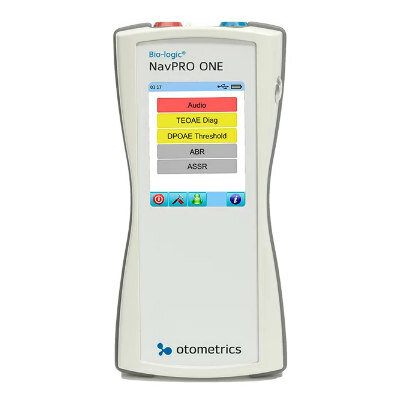Portable Blood-Based Device Detects Colon Cancer
|
By HospiMedica International staff writers Posted on 14 Mar 2025 |

Colon cancer is the second leading cause of cancer-related deaths in the U.S., yet it is highly treatable when detected at an early stage. Traditional colonoscopy screenings, although effective, are unpleasant, expensive, and carry the risk of medical complications. Other screening methods, such as stool-based tests, may yield unreliable results and lead to false positives. To address these challenges, researchers are developing a less invasive and portable device that would use blood samples to detect colorectal cancer.
This device, currently being developed by scientists at The University of Texas at El Paso (El Paso, TX, USA), is designed to detect a colon cancer-specific protein called CCSP-2. The presence of CCSP-2 in colon cancer cells is 78 times greater than in normal colon cells, making its detection a strong indicator of the disease. Because CCSP-2 can also be found in the blood, it serves as an excellent biomarker—biological signals that help indicate the presence of specific diseases. The device, an electrochemical immunosensor, is capable of detecting CCSP-2 and is designed to be miniaturized and mass-produced, offering the potential for use in home settings or in doctors' offices.
Before the device can be made available to patients, it will need to be patented and undergo clinical trials, a process that can take several years. The study, published in ACS Measurement Science Au, marks the first in a series of research efforts aimed at evaluating the suitability of various biomarkers for the portable device. This research paves the way for the potential development of a simple, point-of-care portable device for detecting colorectal cancer. In addition, the team is focusing on identifying new proteins that are over-expressed at different stages of colon cancer, which could serve as additional biomarkers for testing on the device.
“The earlier the detection, the greater the hope for saving lives,” said study co-author Ruma Paul. “Blood-based tests are much easier on patients while also being able to precisely detect the early signs of colorectal cancer. Our research could one day make simpler early detection possible.”
Channels
Critical Care
view channel
AI-Powered, Internet-Connected Medical Devices to Revolutionize Healthcare, Finds Study
A new study suggests that artificial intelligence (AI)-powered, internet-connected medical devices have the potential to transform healthcare by enabling earlier detection of diseases, real-time patient... Read more
Starfish-Inspired Wearable Tech Enables Smarter Heart Monitoring
Physical movement can make it challenging for current wearable devices to accurately track heart activity. Now, a starfish’s five-arm shape has helped resolve this issue. Inspired by the starfish's ability... Read moreSurgical Techniques
view channel
New Transcatheter Valve Found Safe and Effective for Treating Aortic Regurgitation
Aortic regurgitation is a condition in which the aortic valve does not close properly, allowing blood to flow backward into the left ventricle. This results in decreased blood flow from the heart to the... Read more
Minimally Invasive Valve Repair Reduces Hospitalizations in Severe Tricuspid Regurgitation Patients
The tricuspid valve is one of the four heart valves, responsible for regulating blood flow from the right atrium (the heart's upper-right chamber) to the right ventricle (the lower-right chamber).... Read morePatient Care
view channel
Portable Biosensor Platform to Reduce Hospital-Acquired Infections
Approximately 4 million patients in the European Union acquire healthcare-associated infections (HAIs) or nosocomial infections each year, with around 37,000 deaths directly resulting from these infections,... Read moreFirst-Of-Its-Kind Portable Germicidal Light Technology Disinfects High-Touch Clinical Surfaces in Seconds
Reducing healthcare-acquired infections (HAIs) remains a pressing issue within global healthcare systems. In the United States alone, 1.7 million patients contract HAIs annually, leading to approximately... Read more
Surgical Capacity Optimization Solution Helps Hospitals Boost OR Utilization
An innovative solution has the capability to transform surgical capacity utilization by targeting the root cause of surgical block time inefficiencies. Fujitsu Limited’s (Tokyo, Japan) Surgical Capacity... Read more
Game-Changing Innovation in Surgical Instrument Sterilization Significantly Improves OR Throughput
A groundbreaking innovation enables hospitals to significantly improve instrument processing time and throughput in operating rooms (ORs) and sterile processing departments. Turbett Surgical, Inc.... Read moreHealth IT
view channel
Printable Molecule-Selective Nanoparticles Enable Mass Production of Wearable Biosensors
The future of medicine is likely to focus on the personalization of healthcare—understanding exactly what an individual requires and delivering the appropriate combination of nutrients, metabolites, and... Read more
Smartwatches Could Detect Congestive Heart Failure
Diagnosing congestive heart failure (CHF) typically requires expensive and time-consuming imaging techniques like echocardiography, also known as cardiac ultrasound. Previously, detecting CHF by analyzing... Read morePoint of Care
view channel
Handheld, Sound-Based Diagnostic System Delivers Bedside Blood Test Results in An Hour
Patients who go to a doctor for a blood test often have to contend with a needle and syringe, followed by a long wait—sometimes hours or even days—for lab results. Scientists have been working hard to... Read more
Smartphone-Enabled, Paper-Based Quantitative Diagnostic Platform Transforms POC Testing
Point-of-care diagnostics are crucial for public health, offering rapid, on-site testing that enables prompt diagnosis and treatment. This is especially valuable in remote or underserved regions where... Read moreBusiness
view channel
Expanded Collaboration to Transform OR Technology Through AI and Automation
The expansion of an existing collaboration between three leading companies aims to develop artificial intelligence (AI)-driven solutions for smart operating rooms with sophisticated monitoring and automation.... Read more




















